Crafting Your Personal Brand: A Guide for Job Candidates
In today’s competitive job market, standing out from the crowd is essential. Your resume may showcase your qualifications, but what about your personal brand? Your personal brand is what sets you apart from other candidates and communicates your unique value proposition to potential employers. In this blog, we’ll explore the importance of personal branding for job candidates and provide practical tips on how to craft and communicate your brand effectively.
Why Personal Branding Matters
In a sea of resumes and job applications, personal branding helps you make a memorable impression on recruiters and hiring managers. It’s not just about what you do; it’s about how you do it and the story you tell about yourself. A strong personal brand can:
Differentiate You: Highlighting your unique skills, strengths, and personality traits can distinguish you from other candidates with similar qualifications.
Build Credibility: Consistently showcasing your expertise and accomplishments helps build trust and credibility with potential employers.
Increase Visibility: A well-defined personal brand can attract opportunities and make you more visible to recruiters and industry professionals.
Enhance Networking: Your personal brand extends beyond job applications and can help you build meaningful connections and relationships in your industry.
Crafting Your Personal Brand
- Self-Reflection:
Start by identifying your core values, strengths, passions, and career goals. What sets you apart from others? What do you want to be known for? Understanding yourself is the foundation of a strong personal brand.
- Define Your Unique Selling Proposition (USP):
Your USP is what makes you different and valuable to employers. It could be your expertise in a particular industry, your problem-solving skills, or your ability to lead teams. Clearly articulate your USP in your resume, LinkedIn profile, and other professional materials.
- Consistent Messaging:
Ensure consistency in how you present yourself across different platforms and channels. Your resume, LinkedIn profile, cover letters, and online presence should all reflect your personal brand and tell a cohesive story about who you are and what you offer.
- Showcase Your Expertise:
Demonstrate your expertise by sharing content, insights, and experiences related to your field. Publish articles, participate in industry forums, and engage with relevant communities both online and offline.
Communicating Your Personal Brand
- Elevator Pitch:
Craft a compelling elevator pitch that succinctly communicates who you are, what you do, and what value you bring to the table. Practice delivering your pitch confidently and adapt it to different networking situations.
- Networking:
Use networking opportunities to share your personal brand with others. Be genuine, authentic, and enthusiastic about what you do. Building genuine relationships is key to effective personal branding.
- Online Presence:
Optimise your online presence, especially on professional networking platforms like LinkedIn. Ensure your profile is complete, up-to-date, and aligned with your personal brand. Regularly share content and engage with your network to stay visible.
- Professional Development:
Continuously invest in your professional development to enhance your skills and knowledge. Participate in training programs, attend industry events, and seek out mentorship opportunities to further strengthen your personal brand.
Our Final Thoughts
Your personal brand is a powerful tool that can help you navigate the job market and advance your career. By defining and communicating your unique value proposition effectively, you can differentiate yourself from other job candidates and attract the attention of potential employers. Invest time and effort in crafting your personal brand, and watch as it opens doors to exciting opportunities in your career journey.
If you want more advice on how to help you stand out from the crowd, send Anne Fanthom, our Managing Director, a message on LinkedIn



